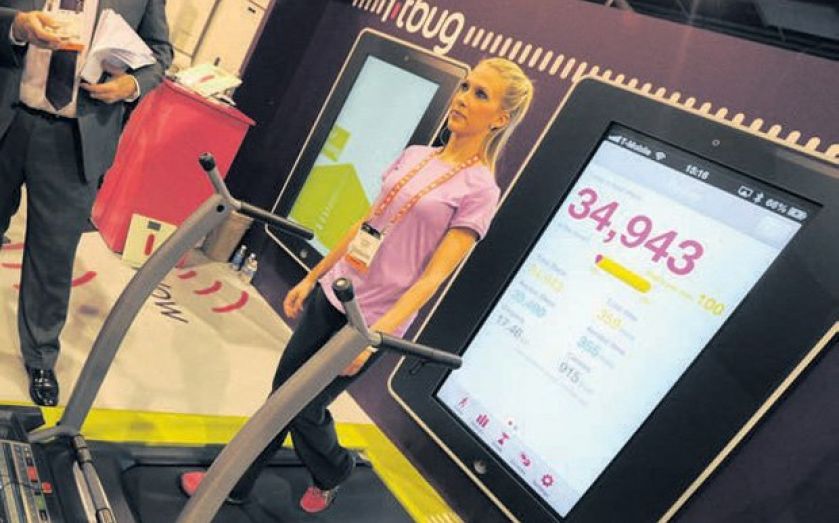Fitbug starts to flex its muscles

The founder of the British fitness tracking group tells Oliver Smith in Las Vegas that he is already thinking about the next big thing
PAUL Landau has had an interesting six months. In July he was the founder of a wearable fitness tracker firm whose share price had hovered around 1p for over two years, with a market valuation of less than one million pounds. Then, in October, Fitbug soared.
News that Sainsbury’s in the UK and Target in the US would begin stocking the relatively unknown Fitbug’s devices took the market by storm. Shares surged as much as 7,000 per cent and by December it was worth over £20m.
This week, Landau is in Las Vegas for the annual Consumer Electronics Show (CES) for his third year running, showcasing the UK startup to prospective partners at the start of what will certainly be Fitbug’s biggest year yet.
“We’re very confident that 2015 is going to be another exciting year for the business,” the former Accenture consultant told City A.M. “We’re having quite a lot of discussions in terms of strategic partnerships [at CES], and when we have anymore details we’ll say more.”
Indeed, new partnerships for Fitbug have been pouring in with Bestbuy.com and Amazon.co.uk agreeing to stock the devices last month as well as pledged marketing plans from Amazon and Target to promote its products.
But while wearable fitness trackers are all the rage now, Landau knows that the next big thing for fitness trackers won’t be selling everyone a trinket to wear , but from the services sold that harness this data being collected.
Which is why Fitbug has spent the past year building out Kiqplan, a 12-week coaching system that pulls data from Fitbug’s trackers, but also works with smartphone data from Samsung and Apple as well as data from the rivals Jawbone and Fitbit.
“It’s just so different,” Landau said. “If you look around CES, there are so many bits of wearable technology, but no one is taking this sort of strategic direction of building a service that sits on top of that device layer.”
Kiqplan’s £19.99 programmes take you through a series of fitness targets and tasks centred on themes such as “Beer Belly Blaster” and “Slim and Trim”. Fitbug this week announced it would add nutrition tracking to the coaching with voice recognition and food label scanning to its programmes.
“Yes people are buying devices, yes they do end up in the bedside drawer two months later because there’s not that engagement piece that takes the data and makes it meaningful to someone. We want to solve that” he said.
In the first half of 2014, Fitbug’s sales grew 98 per cent to £914,000.
However, with no data for the second half of the year, including Christmas and New Year sales with Fitbug in stock at Sainsbury’s and Target, it’s still too early to know exactly how big the impact of the partnerships will be.
“[This year] and 2016 are going to be the big years for Fitbug as we really scale up, build these strategic partnerships and increase the profile of the organisation from there,” says Landau.